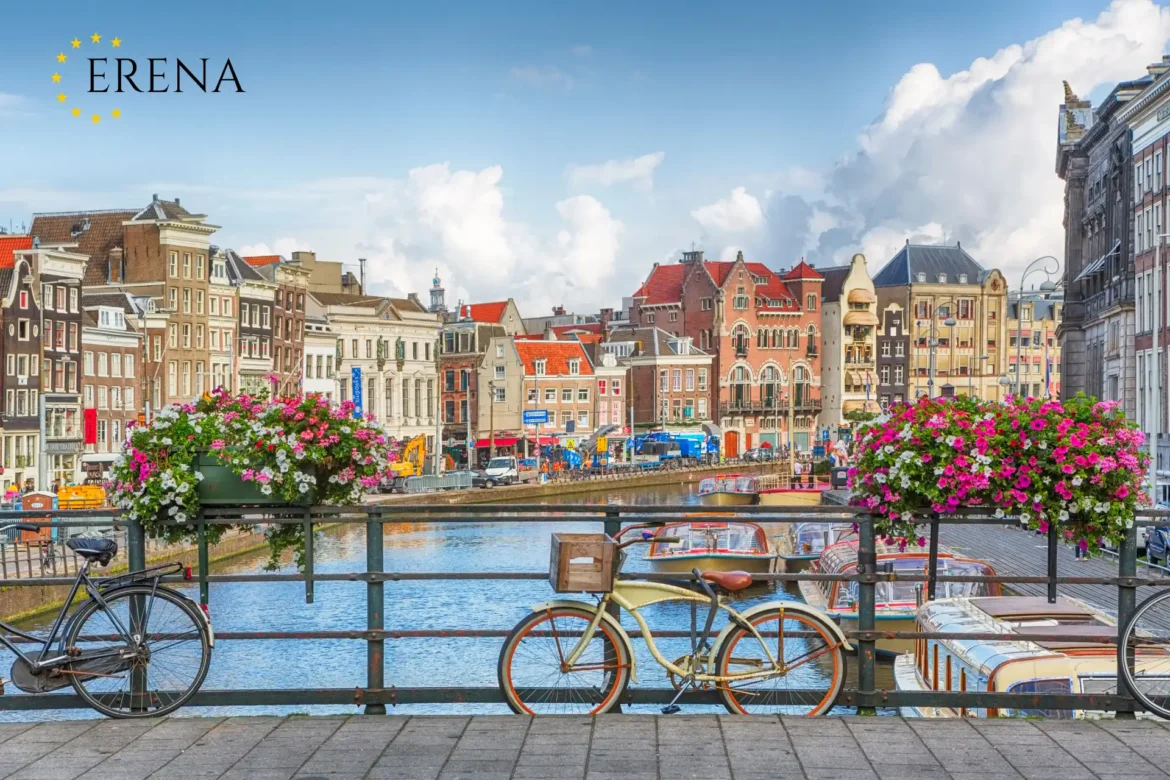Are you an expat in Amsterdam wondering whether to rent or buy a home? The decision depends on various factors, such as your financial situation, how long you plan to stay, and your personal preferences. In this guide, we’ll explore the pros and cons of renting and buying a property in Amsterdam to help you make an informed decision.
Renting in Amsterdam: Advantages and Disadvantages
Advantages of Renting in Amsterdam
1. Flexibility
Renting offers the flexibility to move when needed. If you’re on a short-term contract or unsure about your long-term plans in Amsterdam, renting allows you to avoid the commitment of buying and gives you the freedom to change locations easily.
2. Lower Upfront Costs
Renting requires minimal upfront investment. Typically, you’ll pay a deposit (1-2 months’ rent) and possibly a rental agency fee. Unlike buying, there’s no large down payment or additional transaction costs like notary fees or taxes.
3. No Maintenance Responsibility
In most rental agreements, the landlord is responsible for maintenance and repairs. This saves you from unexpected costs and ensures you’re not burdened with upkeep.
4. More Housing Options
Renting provides access to a wide range of properties in various neighborhoods across the city. It allows you to explore different areas before committing to a permanent home.
5. Lower Financial Risk
Renting minimizes financial risks. If property values decline or you need to leave Amsterdam sooner than expected, you won’t be stuck with the challenges of selling a home.
Disadvantages of Renting in Amsterdam
1. Rising Rent Prices
The rental market in Amsterdam is competitive and can be costly, with rent prices increasing annually. Long-term renting can become expensive.
2. Limited Control Over Property
As a tenant, you don’t have control over major changes to the property. You may also face restrictions on renovations or personalization.
3. No Equity Building
When you rent, your monthly payments go to the landlord and don’t contribute to building ownership or equity in the property.
Buying in Amsterdam: Advantages and Disadvantages
Advantages of Buying in Amsterdam
1. Long-Term Investment
Amsterdam’s property market has historically shown strong growth. If you plan to stay in the city for many years, buying can be a great way to build equity and benefit from price appreciation.
2. Stability and Security
Owning a home offers more stability compared to renting. You won’t face annual rent hikes or risk being asked to vacate. You can settle into a place you truly own.
3. Full Control Over Your Property
As a homeowner, you have the freedom to make changes to your property, whether it’s renovations, decorations, or upgrades, without needing approval from a landlord.
4. Tax Benefits
Homeownership in the Netherlands comes with tax incentives, such as mortgage interest deductions, which can make owning more affordable in the long run.
5. Predictable Monthly Costs
With a fixed-rate mortgage, your monthly payments will stay the same, unlike rent which may increase yearly. This predictability can help with budgeting.
Disadvantages of Buying in Amsterdam
1. High Upfront Costs
Buying a property in Amsterdam requires a substantial down payment (usually 10% of the property price), notary fees, and taxes. These upfront costs can be a significant hurdle for many expats.
2. Mortgage Challenges for Expats
Securing a mortgage as an expat can be difficult. Dutch banks prefer applicants with stable, long-term income in the Netherlands, and it might be harder for foreigners to meet the requirements for a loan.
3. Market Volatility
While Amsterdam’s property market has been strong, it can be volatile. Property values can fluctuate, and selling in a downturn could result in financial losses.
4. Ongoing Maintenance Costs
Homeowners are responsible for all maintenance, repairs, and property-related expenses, including insurance and taxes, which can add up over time.
5. Less Mobility
Once you own a property, moving becomes more difficult. If your circumstances change and you need to relocate, selling your property can take time and might involve financial losses if the market is not favorable.
What’s Best for Expats: Renting vs. Buying?
For a Short-Term Stay (Less than 5 Years)
If you’re in Amsterdam for a few years or unsure about your long-term plans, renting is likely the better option. Renting gives you flexibility, lower upfront costs, and the ability to move easily without the hassle of selling a property.
For a Long-Term Stay (5+ Years)
If you plan to stay in Amsterdam for the long haul, buying might be a more financially sound decision. With mortgage interest deductions and the potential for property value appreciation, buying can be a smart investment. However, this option requires careful consideration of your finances.
If You’re Financially Stable
For expats with stable incomes, good credit, and savings, buying can offer long-term benefits. It allows you to build equity, avoid rent hikes, and enjoy tax advantages. But be sure to assess whether you meet the mortgage requirements and whether you’re ready for the responsibilities of homeownership.
Personal Preferences Matter
Consider how much control you want over your living space. If you want the freedom to make changes or stay in one place for a long time, buying may appeal to you. If you value flexibility and minimal responsibility, renting may be the better fit.
Conclusion: Renting vs. Buying in Amsterdam for Expats
The decision to rent or buy in Amsterdam largely depends on your length of stay, financial situation, and personal preferences. If you’re new to the city or planning to stay temporarily, renting provides the flexibility and lower financial risk you need. However, if you’re ready to settle down and have the financial means, buying offers long-term stability, potential investment growth, and greater control over your living space.
Ultimately, it’s about finding the right balance between flexibility, financial security, and personal goals. Consider your unique situation and choose the option that best fits your lifestyle.

